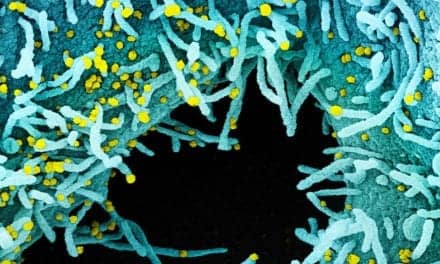Analysis of blood samples from the Children’s Autism Metabolome Project (CAMP) has now reproducibly identified unique metabolic signatures (called metabotypes) in more than 50% of children with autism spectrum disorder (ASD).1 The research was a collaboration among researchers at NeuroPointDX, Madison, Wis, a division of Stemina Biomarker Discovery, the University of California, Davis MIND Institute, and other and academic and clinical institutions across the country.
This new research represents an important step toward the goal of developing a panel of metabolomics tests that could form the basis for a biological screen of risk for ASD. Analysis of other potential blood-based biomarkers using CAMP study samples is ongoing. Validation of additional metabotypes of ASD is expected to result in the ability to detect a still higher percentage of children at risk of ASD using this approach. “A primary goal of the CAMP study, which recruited 1,102 children ages 18 months to 48 months, was to generate a panel of validated biomarkers that, taken together, could detect a large proportion of young children at risk for ASD,” says David Amaral, PhD, of the UC Davis MIND Institute. “Our original analyses, published in 2019, identified and validated a set of metabotypes based on differences in branch chain amino acid metabolism; these metabotypes represented 17% of the children with autism in CAMP.2 This new research builds on that effort, resulting in an optimized set of 34 newly defined metabotypes based on amino acid and energy metabolism. Taken together, the test battery now detects 53% of subjects with ASD in the CAMP study with 91% specificity.” “Using metabolomics to detect objective biomarkers of ASD is a promising approach because metabolism is sensitive to interactions among the genome, gastrointestinal microbiome, diet, and environmental factors that all contribute to risk of ASD,” says Robert Burrier, PhD, chief operating officer of Stemina.
“The CAMP study is the seminal study of the metabolism of children with autism. The study was carefully designed to allow discovery and validation of subpopulations of children with ASD who share common metabolic differences from typically developing children,” says Elizabeth Donley, JD, MBA, MS, NeuroPointDX chief executive officer. “We strive to discover, validate and publish peer-reviewed science from this ground-breaking study with the goal of building trust in the rigor of our science and its potential to change how autism is diagnosed and treated.” While the published findings are based on collection of blood samples from children 18 to 48 months old, future research will be directed at validating this metabolomics approach in children younger than 1 year old when current diagnostic procedures are lacking. The researchers are also exploring whether these metabolic differences can lead to insights that enable more targeted treatment options for children with ASD. For more information, visit NeuroPointDX. References 1. Smith AM, Natowicz MR, Braas D, et al. A metabolomics approach to screening for autism risk in the Children’s Autism Metabolome Project. Autism Res. Epub. June 18, 2020. doi: 10.1002/aur.2330. 2. Smith AM, King JJ, West PR, Ludwig MA, Donley ELR, Burrier RE, Amaral DG. Amino acid dysregulation metabotypes: potential biomarkers for diagnosis and individualized treatment for subtypes of autism spectrum disorder. Biol Psychiatry. 2019;85(4):345-54. doi: 10.1016/j.biopsych.2018.08.016.







